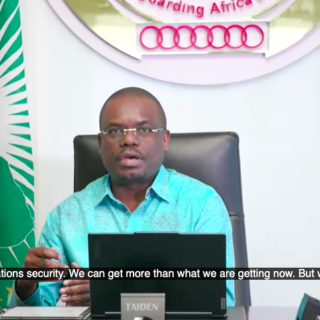
In Bujumbura, some disabled persons are subjected to exploitation by being forced to beg and given a daily amount they must meet.
The streets of Bujumbura, Burundi, are no different from many areas of Africa, where disabled individuals rely on the charity of passers-by as beggars. While their condition calls empathy, some people choose to turn a blind eye to their struggles and instead exploit them by making them full-time beggars in the streets of the city.
This is the heart-wrenching story of Gratien N., a man that since birth has no legs nor hands.
Born in Bubanza, North Burundi, Gratien was taken from his home when he was just 11 years old by his aunt. His aunt promised his parents to provide a monthly remittance in exchange. The lady instead of taking care of his nephew made him beg on the streets of Bujumbura, where he must endure the blazing sun and beg passers-by for money.
His daily target is to collect at least 12,000 BIF to give to her aunt back home. Gratien says he has no other option, and he persists in begging as it’s the only means he has to survive.
This reality is not unique to Burundi; people with disabilities are often stigmatized, marginalized, and discriminated against in other cities of Burundi. They also face limited opportunities for education and employment, forcing many to resort to begging on the streets to cover their basic needs.
In recent years, authorities in Bujumbura, Burundi, have made various attempts to remove beggars from the streets, particularly disabled people and children, as they believe it’s a necessary step towards ensuring public safety and social progress. The police and the Minister in charge of Solidarity have coordinated efforts to repatriate beggars to their hometowns. However, despite these efforts, the same beggars, including children and the disabled, continue to return to Bujumbura, often after only a few days.
This cycle of sending beggars back to their hometowns, only to have them return to Bujumbura for survival, highlights the urgent need for a comprehensive and sustainable strategy to address begging in public places. This requires the government to work in collaboration with all stakeholders, including non-governmental organizations and charities, to implement effective programs that tackle poverty and improve the living conditions of the most vulnerable.
It’s not just about sending beggars back to their hometowns, but rather providing them with the necessary support, education, and job opportunities to enable them to live a life with dignity and free of poverty. Only through a collaborative effort, with the needs and rights of the victims of begging at the forefront, can the cycle of begging in public places be broken..



